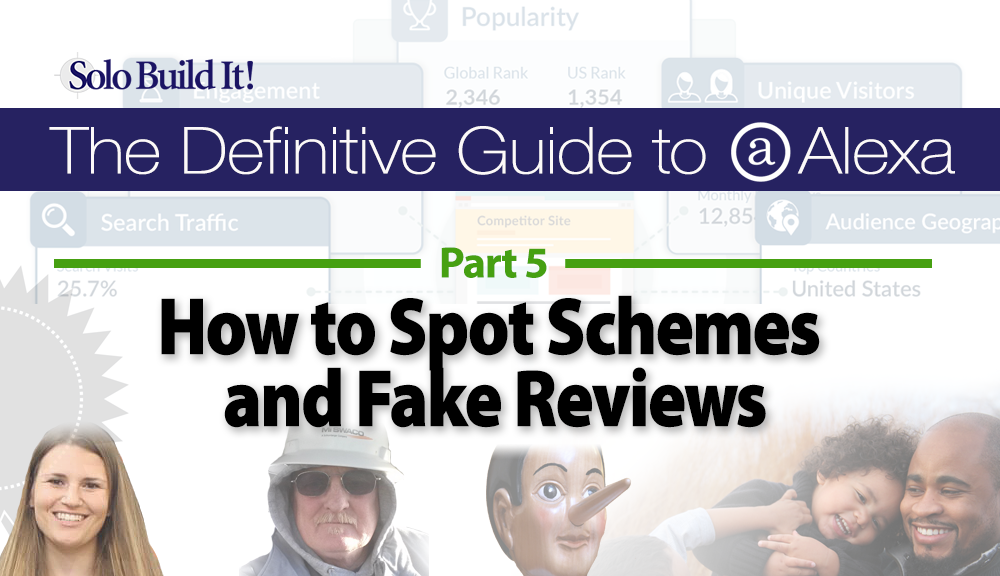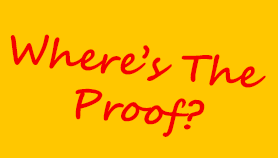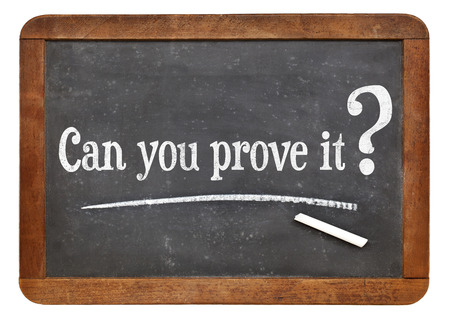— May 5, 2017

After reviewing the methodology underlying how Alexa, Similar Web and SEMrush work, the multiple ways they can be used (and how we use them daily), as well as how Alexa should not be used… it’s time to dig deeper into a major benefit.
There are many online businesses claiming to promote success. How do you cut through the claims of the websites, fake reviews by affiliates (the highest paying programs garner the most reviews), and so forth? Let’s explore what we mentioned earlier…
Insist on Verifiable Proof of Success
What if there are no success stories? No proof, just big claims and sharp sales copy? Leave that site — the story ends badly…
If they could prove it, they would. Wouldn’t you?
You can save yourself a ton of time by focusing on the Success Stories. There’s no point in reading all that sales copy, not if there’s no verifiable proof of success.
These “make money” schemes have skilled copywriters. They could convince an Inuit to buy ice from them, then upsell a freezer to store it, and finally the solar panel to run the freezer.❄️❄️❄️

Anyway, you get the picture!
The idea is to excite you into buying on emotion. Playing to emotions shuts off the analytical side of your brain.
Exuberant, but fake, testimonials from “KB from Dallas Texas” will excite you unless and until you ask…
“Where’s the proof?”
Similarly, ignore long stories by convincing, but untraceable, names like “Melinda Dupuis from Montreal.” She turned her life around, she says, including incredibly moving details. There’s just one item that’s conspicuously missing… the domain name.
We can’t help laughing when we see “domain name withheld by request” or some such excuse. Why exclude that after including so much detail about how great the business is doing?
Some have answered, “I don’t want competitors to see this.” So wait… this site is supposed to be amazingly successful, but your competitors don’t know about you?

Keep your left brain alive by asking, “Where’s the proof?“
Put a “Where’s the proof?“ yellow sticky on your monitor until you’re fully vaccinated against sales copy without domain name proof.
There are loads of “make money” scams. We’ve seen it all since 1997! I dug up this series of posts about the topic, using Wayback Machine’s archives (written by me more than 10 years ago):
- Mooch Marketing (Dec 2006) – The 5 Lessons
- Success Stories and Mooch Marketing (Jan 5, 2007) – 2 Expensive Lessons (free)
- Play Within Yourself… In Golf, Internet Marketing, And Life (Jan 16, 2007) – the only secret that matters.
The above 3 posts are quick yet valuable reads about how scammers operate and what you can do to stay safe. This information is as true today as it was back then, as it will be 10 years from now. The scams and schemes are more sophisticated nowadays, but the principles are the same. And the people never change…
“Mooch Marketers” are sociopathic. They take money from folks, often crazy amounts, amounts that can’t be afforded, in exchange for… disappointment.
The most important truth to remember? One way or another, no matter how sincere or brilliant or caring or tempting they may sound…
They. simply. make. stuff. up.
But they can’t prove success.
Affiliate Reviews? Give Them the Same Treatment: “Proof or Pass!”

Many affiliates do not identify themselves as such, despite the law. So treat all reviews the same way.
Insist on proof or pass them by. That’s all you have to do.
Link to this article and ask them where THEIR proof is. They’ll probably take your comment down since there’s no good answer.
Businesses with real track records of success go out of their way to prove it.
Whether it’s a product that helps you read faster or jump high enough to “dunk” a basketball, real proof makes the case more effectively than anything else.
If we were selling the former, we would hire a respected professional trainer to document the “before” and “after” results. It would demonstrate (for example) a 53% increase in reading speed with a 40% jump in information retention. The latter would document an increase of 6 inches in vertical jump.
Affiliates who recommend genuinely great products do the same. Wouldn’t you proudly present just how much better your “recommendation” helps people, instead of just saying “it’s my #1 recommendation” (the way everyone else has been taught to do)?
Anything that claims some sort of tangible improvement can be proven. Any business or affiliate review that fails to document it is suspect (at best) or fraudulent (at worst).
In the world of online business-building, that proof is the inclusion of a domain name (ideally one with a contact page).
Armed with that, you can use Alexa (and/or SW and/or SEMrush) to measure traffic. You can even reach out to the owner and ask what s/he thinks of the product.
The most credible reviews are…
- personal stories of success from actual use of the product
- written by real people who build real businesses based on real niches, the type of niche that you know and love — not (yet another) “make money” site.
When it comes to our unscrupulous competitor that I told you about in Part 2, you’ll notice that you keep finding the same few “make money” sites when searching for reviews about us. Our competitor has hundreds of sites/affiliates writing fake reviews about many products.
The few who succeed in the “make money” niche are bound to get found at Google, along with a few others here and there, simply by the law of large numbers (i.e., if you throw enough of it against the wall, some of it is bound to stick).
The result is that you only see the few “survivors” — it’s called “survivorship bias.” No one sees the thousands of failed sites, whose owners have been led into “make money” and are failing dismally (but you’ll see them in our upcoming study, where they dominate the “Invisible” end of Alexa).
So check the site of the actual company, and the affiliate review, for domain names.
We’ve identified Wix’s success stories by examining the domain names provided on their success page (we can give them credit for doing that much). Do the same for any sitebuilder or Web host that you may be considering.
SIDEBAR: When you have the domain name, you can also verify that the site is actually hosted on Wix (or with us or with a competitor). Use this DomainTools “whois” tool.
For example, let’s check another Wix “success” (Alexa = 12,000,000!). DomainTools’ whois report lists a site’s “Name Servers,” which show where it’s hosted…

Why is this sometimes useful? Two reasons:
- One affiliate actually offers two domain names as being among the competitor’s success stories. The only problem is that neither is actually a customer. That same article lists 14 other success stories. But, as you may have guessed by now — no domain names.
- Others who write fake reviews or glowing articles are affiliates who do not use the product. They merely promote it for the high commission (we pay a reasonable commission to keep our price down).
How do you use Alexa? Enter the domain name and see if traffic is in the Top 1,000,000. There are 170,000,000 active sites, according to the authority on this topic, Netcraft. Let’s round that number up to 200M, just to keep the math easy.
Being in the Top 1M puts you roughly in the top ½ of 1% of all sites online. That’s success.
The next two ballparks are…
- Top 1.5% (Pretty good – 1,000,000 to 3,000,000)
- Top 3% (Medium – 3,000,000 to 5,000,000)
Even the top 3,000,000 is “Pretty Good.” And the Top 3% isn’t bad, especially if traffic is growing. At this level, scatter is increasing, so use all three tools to increase your confidence.
Note: Remember, sites with less traffic may still be doing well financially. If one business has a “narrow niche” with a high-paying monetization model (e.g., selling Hollywood real estate), a higher Alexa ranking can be more than satisfactory. Nevertheless, using Alexa to verify domain names gives you good ballpark traffic estimates. And income is proportional to traffic.
Anything higher than 5,000,000 gets more complicated. Scatter is greater, so traffic may be greater (or lower) than the trafic ranking suggests. It may be a young site on the way up. Our suggestion…
Keep the definition of “success” simple for the purpose of assessment. Sites in the Top 1,000,000 are rare (0.5% of all active sites). They generally have traffic that the average solopreneur would love to have. The lower categories will fall into place behind it.
You want a clear answer to this question…
“Which company is more likely to help me get into that elite category?”
We answer that not just by providing domain names, but by demonstrating it with domain names in every way possible (deep-dive Case Studies, 500 Top 0.5% results, new stories with takeaway lessons in our blog). If you can find another company that proves it better, let us know.
Sidebar: We have twice made offers of $ 50,000 to anyone who could find better proof of success. Despite quite a bit of buzz, there were no takers.
The Ultimate Proof Is Coming…
In our soon-to-be-published study, you will see that the difference (in both success rate and level) between Solo Build It! and the product of our unscrupulous competitor is more than 20X. Why unscrupulous? It’s unethical to teach affiliates to 1) write fake reviews to 2) promote untruths.
The study is further corroborated by SW and SEMRush. When you do that, the difference is even greater. It’s time to end the intentional spreading of mistruths. We don’t call them “lies” since some of the affiliates may not be truthfully informed. But the owners of that company must know how bad their track record is, and how unethical their behavior is.
Sidebar: You may have a question at this point…
“Why don’t you just publish each SBI! site’s actual traffic?”
Answer: Alexa, SW and SEMrush are all publicly available. Google Analytics is private and we don’t have access or permission.
We do have access to each site’s log files, which is how we verify that our Top 1,000,000 in the Results page all belong there. But we would have to ask more than 500 site owners for permission to make those logs public. Alexa, SW and SEMrush are highly reliable when averaged over 500 sites, so there’s little benefit to doing all that.
Most importantly, even if we did all that, you would not be able to verify the truthfulness of the screenshots that we would provide. The three publicly available tools are verifiable by cross-checking and contacting owners.
So the best way to verifiably show the traffic of others is to use Alexa. Ditto for comparing SBI! vs. the most unscrupulous competitor we’ve ever faced. And by now, you know why we are the only company that proves it in such detail.
Businesses that truly enable solopreneurs would just not talk about it or provide stories with no domain names. They would prove it. Bad operators don’t provide verifiable proof because they can’t.
So insist upon seeing actual domain names. After all, if you’re going to invest in them, it’s your time, money and life.
- If you see no success stories with domain names, run!
- If you see some success stories, expect to see at least 1 or 2 with good Alexa scores. The “Law of Large Numbers” assures that at least a few are bound to win. If you can’t find at least 10, something’s wrong.
- If you see as much proof of success as we provide, let us know. Given our previous $ 50,000 challenges, we doubt you’ll ever find it.
By the way, we did not see a single Alexa Top 1 Million site in Wix’s Success Stories section. It seems crazy to ask if Wix has as many sites in the Top 1,000,000 as SBI!. After all, they have 100,000,000 users.
Excluding free sites, they have 2,500,000 paying subscriptions. That’s 2,490,000 more “Wix users” than SBIers. We’re planning a more comprehensive study on Wix. Based solely on their user numbers, we would expect to find correspondingly more Top 1,000,000 Wix sites than SBI! sites. However, based on our initial random sampling and their “Success Stories,” we assess that it may not be so.
Sign up here to be notified when that report becomes available.
We challenge ANY company to prove success in the numbers and ways that we do.
If you do find any “success stories,” here’s how to check (including on our own site):
- Use Alexa, SimilarWeb and SEMrush to double-check for traffic success.
- Pick a few websites, randomly, and use their contact form to ask if it’s true. Are they actual customers? Is the story true? Are they happy?
I repeat… We challenge any company that claims to enable success to prove it.
We prove success in many different ways, all of them verifiable. Head to any or all of these forms of proof and check us out as deeply as you want:
At the end of the day, the only thing that matters is this…
Who is most likely to enable you to succeed?
The only way to factually answer that is with data-supported proof…
- an honest, proven track record that you can verify for yourself — skip the hot copy, glorious promises and the emotional but uncheckable stories. There’s lots of proof on our site, little or none on others. Where you do find claims of success, insist on proof. Why would they not do that? It’s not an oversight.
- 90-day Guarantee. We know that Solo Build It! may not be for you, even though it works. If you decide it’s not your cup of tea after using it for 90 days, you get a full refund. After that, you can still get a pro-rata refund! Why so generous? 2 reasons…
- If you have the BAM to try it, you deserve full protection.
- We have confidence in SBI!.
Sidebar: Just in case you’re wondering if we honor that guarantee 100% of the time, the answer is a resounding, “Absolutely yes!” There is no true report of us reneging on our guarantee, ever.
If you ever do find such a complaint, contact us at question.sitesell.com. I will report on it personally, with the real sequence of events from actual email correspondence.
It’s unlikely to happen, but anyone can write anything, especially after reading this. We’d like to know about it because we honor every such request, and always have.
And that’s it.
There’s a long-standing tradition in marketing to sell the sizzle, not the steak.
Ignore the sizzle…
Insist upon seeing the “steak of proof of success.”
No matter how hot the sizzle, only the steak counts.
Cut through all the noisy copywriting, including that on our own site, by insisting on proof of success AND a guarantee like this.
Keep Your Investigation Simple
In a fierce world of claims, exaggerations and outright lies, in a world where consumer groups are alarmed by the volume of fake reviews, don’t make it more complicated.
Look for data that tells you who is most likely to help you become an online success.
Sidebar: Of course, some people like to read. So we provide loads of info about Solo Build It! — start here. But seriously, it’s “optional reading.” Just:
- Check out the proof (the various types outlined just above).
-AND-
- Count on the guarantee.Ken Evoy is the Founder, CEO, and Chairman of the Board of SiteSell Inc. He is the creator of SBI!, SiteSell’s comprehensive Web business-building system. Ken is also a successful inventor, author, and emergency physician. He feels strongly that solopreneurs can be empowered by leveraging their income building potential online.
Digital & Social Articles on Business 2 Community
(77)